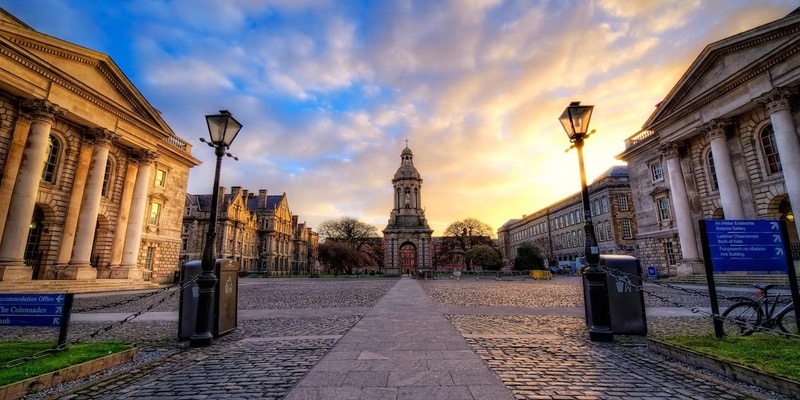
At the end of 1967, Trinity students and staff, as well as the rest of the country, were worried about the massive foot and mouth epidemic that broke out on the other side of the Irish Sea. Not only did the fear of contamination through British tourists result in the cancelling of Trinity annual skiing trip that was to take place in Courchevel that year, but the Trinity Board also asked British graduates not to come back in Dublin for Commencements, much to the bewilderment of Charles Dutton who wryly noted that “one infected seagull with dysentery flying over a herd of Irish cows would wreak more havoc than a whole posse of disinfected English graduates”.
However, fear of “British invasion” was not only a health matter in those days. Facing complaints of Irish taxpayers who refused to fund the education of British citizens, the Board dramatically announced that all non-Irish, save the ones coming from underdeveloped countries, would be cut out from Trinity College in the future. That extreme stance is discussed at length in Trinity News, and while being deemed unrealistic – definitely inspired, the already-mentioned Charles Dutton states that “the Board’s announcement that the English presence in College is to be drastically reduced should, like American announcements concerning their presence in Vietnam, not be taken too seriously” – it is nevertheless harshly criticized, especially by Owen Sheehy-Skeffington, then a scholar in the French Department. He angrily deplored “this recent xenophobic decree as short-sighted, discourteous and self-damaging on the part of Trinity College”.
In the cultural realm, Trinity News took part in the general mourning prompted by Patrick Kavanagh’s death, while complaining that their college did not bother to send an accredited representative during “Irish leading poet’s” funeral. “Even UCD. showed their respect!” bemoans the editor.
Reading the 1967 Trinity News issues is a bittersweet experience. You heartily laugh and you think how living in the sixties must have been wild when you learn that “the Oxford University Buddhist Society has been threatened with excommunication by their national leader, because of the alleged connection of their members with psychedelic drugs” or when you come across the smashing title “College to buy own Computer”. You snigger when you realize that the phrase “society-loving hipsters” was already used by not-so-charitable Trinity News critics. But, when, in the course of an interview given by the then-young Labour Party TD Michael O’Leary, appears the sentence stating that in Dublin “the elementary need of a person for shelter is not provided for by legislation of any sort”, you grimly realized that some social problems, while more than fifty years old, are yet to be properly tackled and your laughter turns sour.






